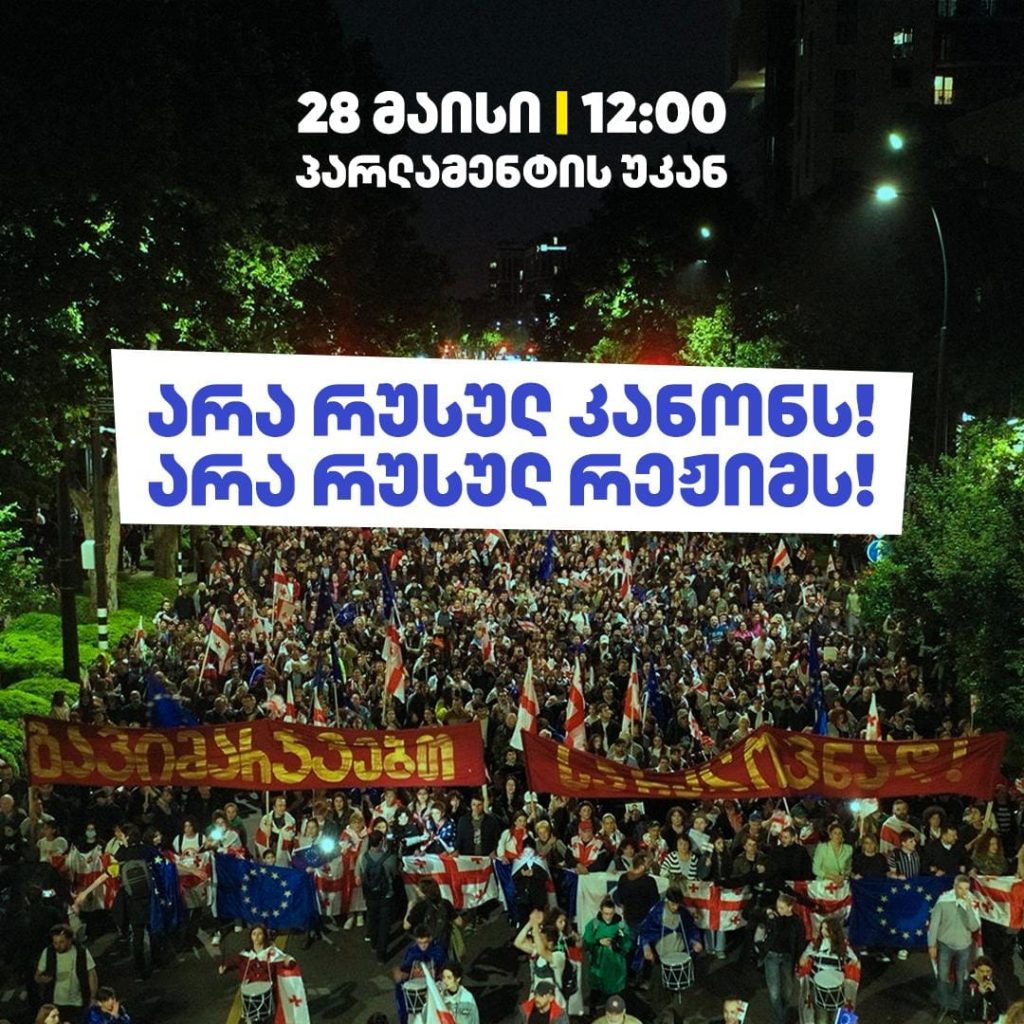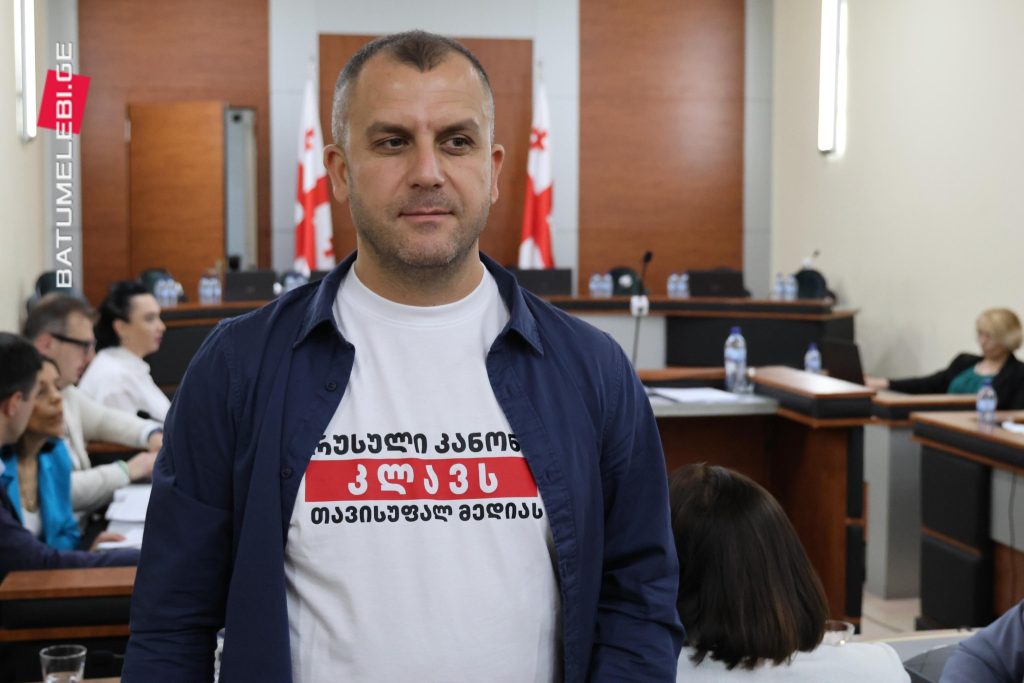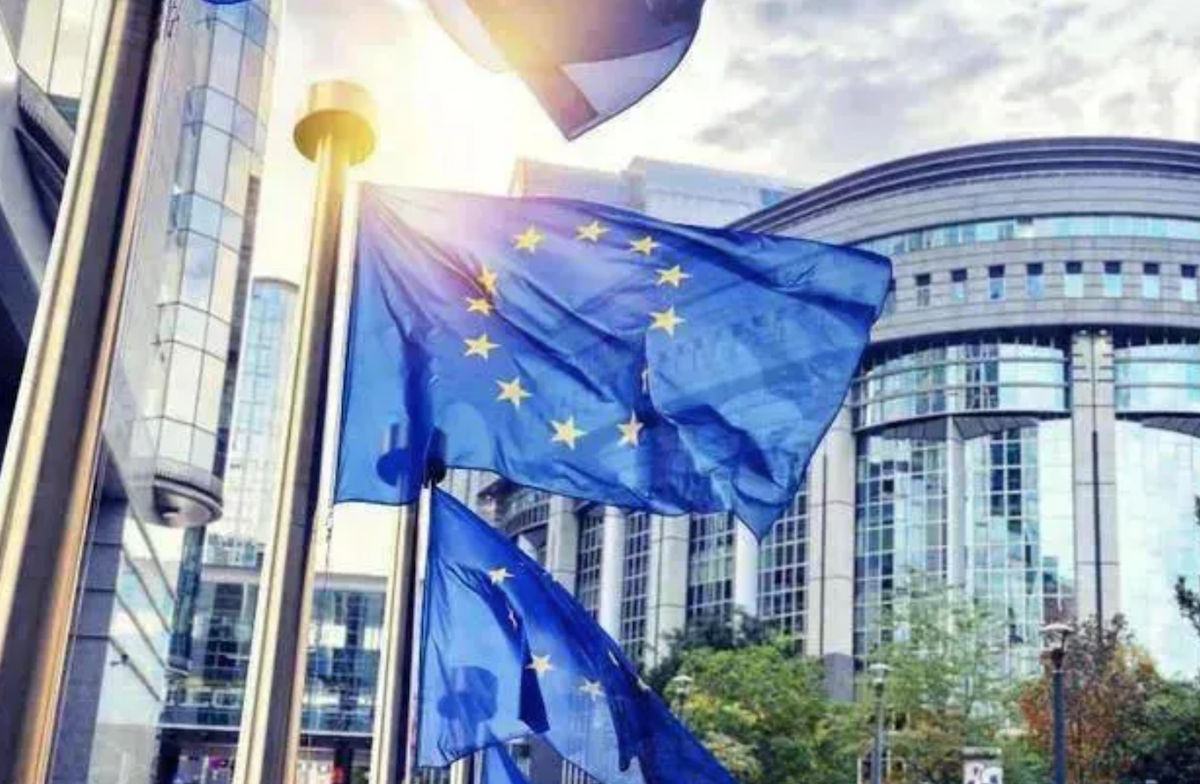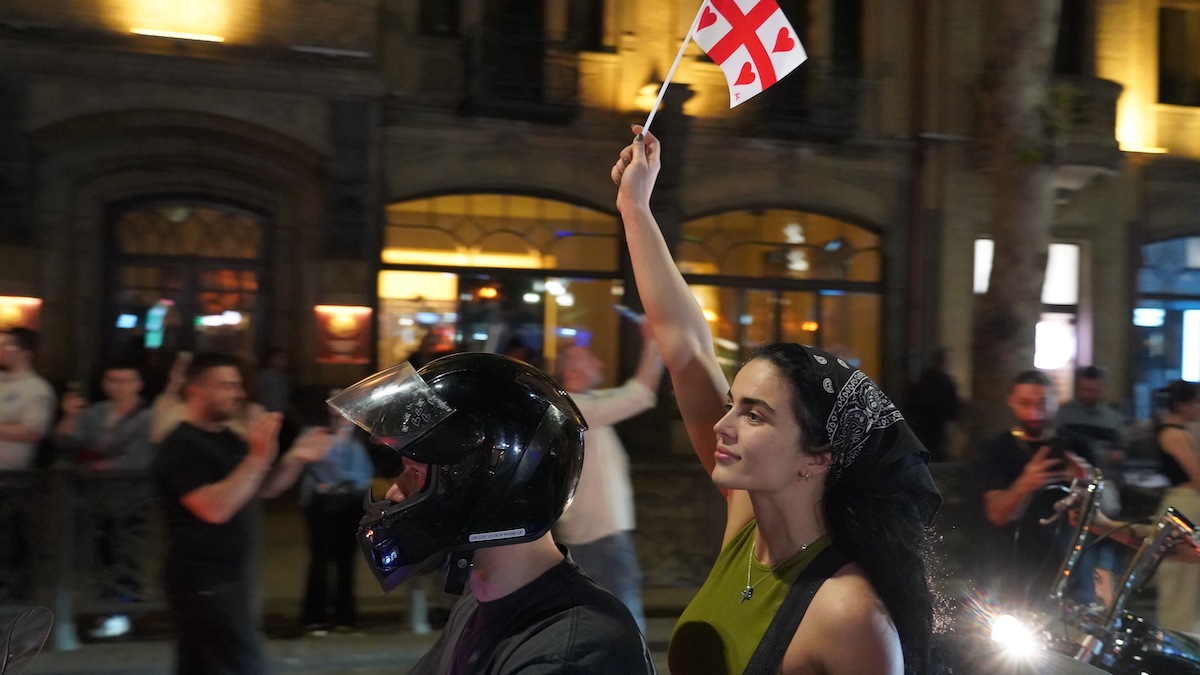It's the final day for registration in the 'foreign agents' registry in Georgia. What is everyone planning to do?
Georgia’s “foreign agents” registry
September 2 is the deadline for organizations to register under Georgia’s “foreign agents” law, often referred to as the “Russian law” by the public. Under this law, so-called “foreign agents” must voluntarily register in a special registry. To facilitate this, the Ministry of Justice opened Public Service Halls in 30 cities across Georgia on Sunday, September 1.
The state registry is set to begin registering organizations from September 3. The head of the National Agency of Public Registry announced this in the Constitutional Court, where lawsuits against the law were being reviewed. Initial checks will focus on organizations that have openly stated they are not registered in the registry, according to the agency’s chairman.
- Violence in Georgia: From introduction to adoption of ‘foreign agents’ law
- Georgia’s “foreign agents” law is now a reality. When will it take effect and who will it impact?
- International Coalition for Media Freedom criticizes Georgia’s ‘foreign agents’ law
As of August 30, only one percent of non-governmental organizations (322 out of approximately 30,000) operating in Georgia have registered on the special website created by the Ministry of Justice as organizations “advancing the interests of a foreign power.”
The “Russian law” has been in effect in Georgia since August 1, 2024. It was passed by the Georgian Parliament amid a 50-day, large-scale protest by civil society and strong criticism from the West.
The law’s passage was marked by beatings, intimidation, arrests, and violence against protesters. Following its adoption, the European Union halted Georgia’s EU accession process, and the United States imposed sanctions on high-ranking officials and some parliamentarians.
This law requires organizations with more than 20 percent of their annual income from foreign sources to register in a special registry as entities advancing foreign interests.
Organizations that refuse voluntary registration face a fine of 25,000 lari (around $9,300) and will be forcibly registered by the state.
On August 31, Georgia’s Constitutional Court concluded three days of preliminary hearings on lawsuits challenging the “foreign agents” law. The fate of the law will be clearer in a few days when the court decides whether to take up the case, suspend the law’s implementation, or allow it to remain in effect while the review proceeds.
Much of the public is skeptical of the Constitutional Court, influenced by the content of the hearings.
-
Details of the lawsuits
The first lawsuit, filed by the president, argues that various provisions of the law violate the right to personal development, the right to privacy, and the right to freedom of information. The lawsuit claims that the law, in its entirety, contradicts Georgia’s integration into European and Euro-Atlantic structures.
The second lawsuit has been filed by 122 non-governmental and media organizations. This lawsuit argues that various provisions of the law violate the right to freedom of information and media and contradict constitutional provisions regarding the formation of trade unions.
The third lawsuit has been submitted by 38 opposition lawmakers. They seek to challenge several articles of the law that they believe infringe upon the right to form trade unions. The lawmakers also argue that the law as a whole contradicts the constitutional principle of integration into European and Euro-Atlantic structures.
The fourth lawsuit has been filed by two media organizations—”Studio Monitor” and “Network of Information Centers”—which claim that various articles of the law violate the rights to equality, freedom of information and media, and the formation of associations.
On August 29, Constitutional Court Judge Merab Turava announced that a fifth lawsuit had been filed with the court. However, it has not yet been registered, and no further details are available about it.
It is also known that non-governmental organizations plan to challenge the “foreign agents” law in the European Court of Human Rights.
Tensions are rising in the non-governmental sector and the media, the primary targets of this law.
Recently, the announcement by the “Shame” movement (Sirtskhvilia) that it plans to register in the “foreign agents” registry has sparked significant debate.
“Shame”: Why did this cause such a stir?
On August 30, the organization, which had been one of the most active participants in the protest movement against the “foreign agents” law, suddenly announced its intention to register in the so-called “foreign influence agents” registry.
The movement released a nine-minute video on social media explaining its decision. Representatives of “Shame” stated that they had considered various options before making their choice, attempting to “choose the best of the bad options,” and presented their reasoning.
They explained that they “decided to register to preserve the organization and be prepared for the parliamentary elections in October.” They noted that the authorities had already discredited “Shame” in the past, and the organization had already suffered reputational damage.
They also argued that since the revised law no longer specifically mentions the “agent” status, registration—or the lack thereof—does not determine whether an organization will be labeled as an agent. (This part of the video was heavily circulated by pro-government media.)
“Everyone, whether they register or refuse, has always been considered an agent in the eyes of the authorities, and that will continue to be the case,” said Giorgi Mzhavanadze, the executive director of “Shame.”
The organization’s decision sparked widespread outrage, with many calling it a betrayal, accusing it of selling out for money, and labeling it as an agent of the Georgian State Security Service.
The activist movement “Shame” was founded in Georgia in June 2019. The group emerged when the Georgian Parliament invited Russian MP Sergey Gavrilov, who, while opening a session of the Interparliamentary Assembly on Orthodoxy, sat in the Georgian Parliament Speaker’s chair. This act provoked widespread public outrage, leading to the #Shame protest. Gavrilov was eventually forced to leave Georgia.
Since then, “Shame” has become a protest movement at the forefront of significant events in the country. The movement played a central role in organizing protests over the past two years, where thousands of people rallied against the adoption of the “foreign agents” law.

In addition, the timing of “Shame’s” statement coincided precisely with discussions in the Constitutional Court—a key process for challenging the “Russian law.”
The movement also criticized the use of the term “agent.” The claim that the word “agent” is no longer mentioned in the law mirrors the government’s messaging. At the same time, this issue was the main subject of debate in the Constitutional Court.
The following day, August 31, “Shame” participants apologized, removed the video, and announced they were reversing their decision. Giorgi Mzhavanadze also stepped down as executive director.
In their new statement, the organization acknowledged that both the content and form of their previous statement were mistakes and that the risks had not been adequately assessed.
“Based on feedback, we believe we contributed to sowing nihilism and disappointment even among our partners, which clearly harms our overall goal both in the short term and long term. One reason for our decision was our belief that paying fines to the government before the elections was fundamentally wrong, and we still hold this view. Therefore, should fines be imposed, ‘Shame’ will not pay them,” the new statement reads.
“We have no choice, we are registering.” “We are not registering.” What are organizations planning to do?
The situation with “Shame” has reignited the debate over whether to register or not in the “foreign agents” registry.
Some organizations have chosen to publicly state their positions on social media, regardless of their decision to register.
The newly formed platform “European Orbit of Georgia,” founded by former Public Defender Nino Lomjaria, announced on August 31 that it will not register and supports every citizen who has defended, defends, and will defend Georgia’s European future.
The “Association of Young Lawyers of Georgia” also announced long before the “Shame” incident that it would not register in the registry.
A general meeting of the “Charter of Journalistic Ethics of Georgia,” a media organization, unanimously decided not to register in the registry.
Most media outlets also do not plan to register.

For example, journalist Gela Mtivlishvili, founder of several media outlets including “Mtsis Ambebi,” “Sakartvelos Ambebi,” and the “Network of Information Centers,” shares this view. His lawsuit, filed in collaboration with partner media “Studio Monitor,” is among those currently being reviewed by the Constitutional Court.
“Studio Monitor,” an investigative journalism group known for its high-profile investigations into corruption, nepotism, and judicial clans, holds the same stance.
Both media outlets are primary targets of the authorities, as publicly stated by Georgian Parliament speaker Shalva Papuashvili on social media.
The online media outlet “Tabula” plans to register as an organization abroad, according to its public statement.
“Tabula” is a Georgian media outlet that will remain Georgian and continue its work based on the principles and values of professional ethics. To achieve this, it will take necessary steps, including changing its domain and registering in Europe. This will legally protect it from the influence and pressure of the “Russian government” of Georgia, says Levan Sutidze, editor at Radio Free Europe.
However, some organizations have stated they have no choice but to register due to their specific situation. This decision is often made by organizations that provide services.
Unlike “Shame,” these organizations face less public criticism because many offer vital assistance, such as support for the elderly, victims of violence, or cancer patients.
For instance, the NGO “Green Movement of Georgia,” which focuses on environmental issues, is likely to register.
“Registering in the registry will be a forced decision, though I am not going to cease my long-standing work. If the grants received from Europe are considered ‘agency,’ then let me be an agent of the European Union,” says the organization’s head, Nino Chkhobadze.
Another environmental organization, “Eco Center,” will also be forced to register. They argue that fines would hinder their operations, leaving them with no other option. However, if the “foreign agents” law is not repealed after the elections, the organization may cease its activities altogether.
Some organizations have already shut down. Among them is Animal Project, an initiative founded by activists four years ago to protect stray animals.
“I am doing the work that the state should be doing,” says Natia Chikovani, one of its founders.
“We are closing our accounts. We will fulfill all financial obligations related to projects today or tomorrow. After completing current projects, the organization will transition to a fully volunteer-based operation that does not require funding,” she adds.
The “Kindness Revolution” fund, which assisted families in need, has also ceased to exist. Its founder states that the fund relied on donations from friends, some of whom sent money from Europe. Over three years, the fund helped nearly 400 families.
“I spent 208 lari [about $77] on liquidating the fund. With that money, we could have helped another family,” reads the fund’s statement.
Other organizations are seeking ways to survive until the elections at the end of October. They aim to avoid leaving voters alone with the ruling party’s propaganda.
The future of the civil sector and media in Georgia hinges on the election results. Opposition parties have pledged that if they win, they will immediately repeal the “foreign agents” law.




















